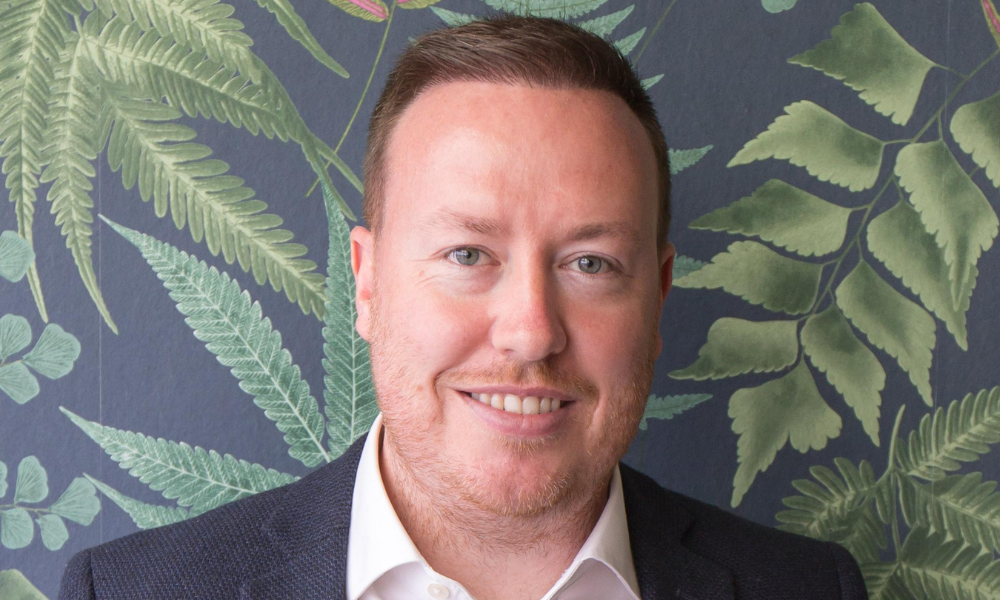Broker, whose redundancy led to him founding his business, reveals his success secrets

Sometimes losing your job can seem like the end of the world, but it can also be a golden opportunity to embrace a new business opportunity and to explore unresolved ambitions.
Just ask Ben Groves, founder and managing director of Yomo Finance, who worked for Lloyds Banking Group for around 15 years until he was made redundant and went self-employed.
“I always say that I was in a fortunate enough position to have been made redundant,” said Groves, “and that gave me the flexibility to effectively become a self-employed broker straight away, at another firm. I've got a young family, so becoming self-employed really helped us.”
The couple of years he spent working in a freelance capacity gave Groves the time to acclimatise and formulate a plan for his own business - and so Yomo was born.
“I wanted to set up my own business, but I felt like I needed to know mortgage broking first,” he explained. “It's not like I could go from a formal financial services career into setting up an AR straight away - that just wouldn't have happened. So, it was always part of the plan. I've always been inclined to set up by myself.”
Coming up to its first anniversary, Yomo has a team of eight advisers, primarily focused on the first-time buyer market. Based in Aylesford, Kent, it offers a full case management approach, so a client always has two points of contact – a broker and a case manager – and it aims to be a paperless operation. Last year it wrote just under 300 applications (when it had three advisers), with a 95% app to offer rate, and used over 40 lenders.
Groves believes brokers have to be proactive in what he perceives as a still difficult market.
“Gone are the days where you could just sit there and wait for a lead or a client to contact you,” he noted. “You've got to go to find it, and obviously there are lots of brokers, there are lots of firms and we're all competing against each other.
“We offer a good service locally and nationwide and we've kind of instilled that within our brokers, making sure that they do respond to clients. We win a lot of business – and this is crazy - from brokers who just don't contact the client back.”
He continued: “You spend all that time either working with a client on a purchase or remortgage, and then when their product comes up for expiry, not contacting the client, not being proactive. This is a market where that is gold dust. You've already done the hard work. Reaching out to those clients that you've already built a relationship with is absolutely paramount. We do regularly communicate with our clients, even if we haven't done business with them yet.”
READ MORE: New networking initiative launches
How important is networking in mortgages?
Networking is also a valuable tool, in Groves’ view.
“Speak to your connections,” he urged. “Do lots of networking. If you were to ask someone at a networking event, ‘Introduce me to the best contact you have in your phone book’, it just opens up things. We do lots of networking and that's only going to grow next year.
“If you join a networking group and there's 20 or 30 members and you're holding the mortgage seat, there's huge potential there. I feel like we're all having to work harder for the same, if not less, business and it's about how brokers come across.
“There's no point in us turning up to one meeting, every other month. If it's a monthly meeting, you've got to commit, otherwise you miss that opportunity to build those relationships.”
Trust is also more important than ever, Groves believes.
“People need to be able to trust the advice that you give,” he said. “If you recommend a product that's not quite suitable, or it gets a decline for whatever reason, that trust goes. So, we're working really hard on making sure that the first time to offer is extremely high.”
Undeniably ambitious, Groves plans to launch a specialist finance service over the next year and establish new relationships with estate agents, solicitors and developers, in a bid to double the size of the business.
“It's a case of making sure that everyone in the team is singing from the same hymn sheet,” he said. “If we're all saying the same thing and want the same quality, then that will come out with any introducers that we bring on board.”
While Groves endorses physical networking, he also appreciates online marketing.
“Social media is only going to continue to grow,” he predicted. “There's no point in posting once a month - you've got to post regularly in order to be seen and heard. It’s about making sure we have good quality content.
“You're not just pumping out something for the sake of getting likes or views, you're educating potential clients and that's where you win a lot of business. Our social media is going to be more around lead generation. Everyone's got to be online. You have to be visible if you're going to be a successful broker.”
So what, then, does Groves think makes a good broker?
“I think it's your attitude to making sure that you're doing the right thing for the client, which I know sounds really cliched,” he said, “but even as a new broker, when I first came in, it was all about me speaking to the lenders, understanding their criteria and really making sure that you can stand over that recommendation.
“It's always about reliability, making sure that your client can rely on you to do the right thing for them. In this current market, people can't afford to not give really good, solid advice.”



